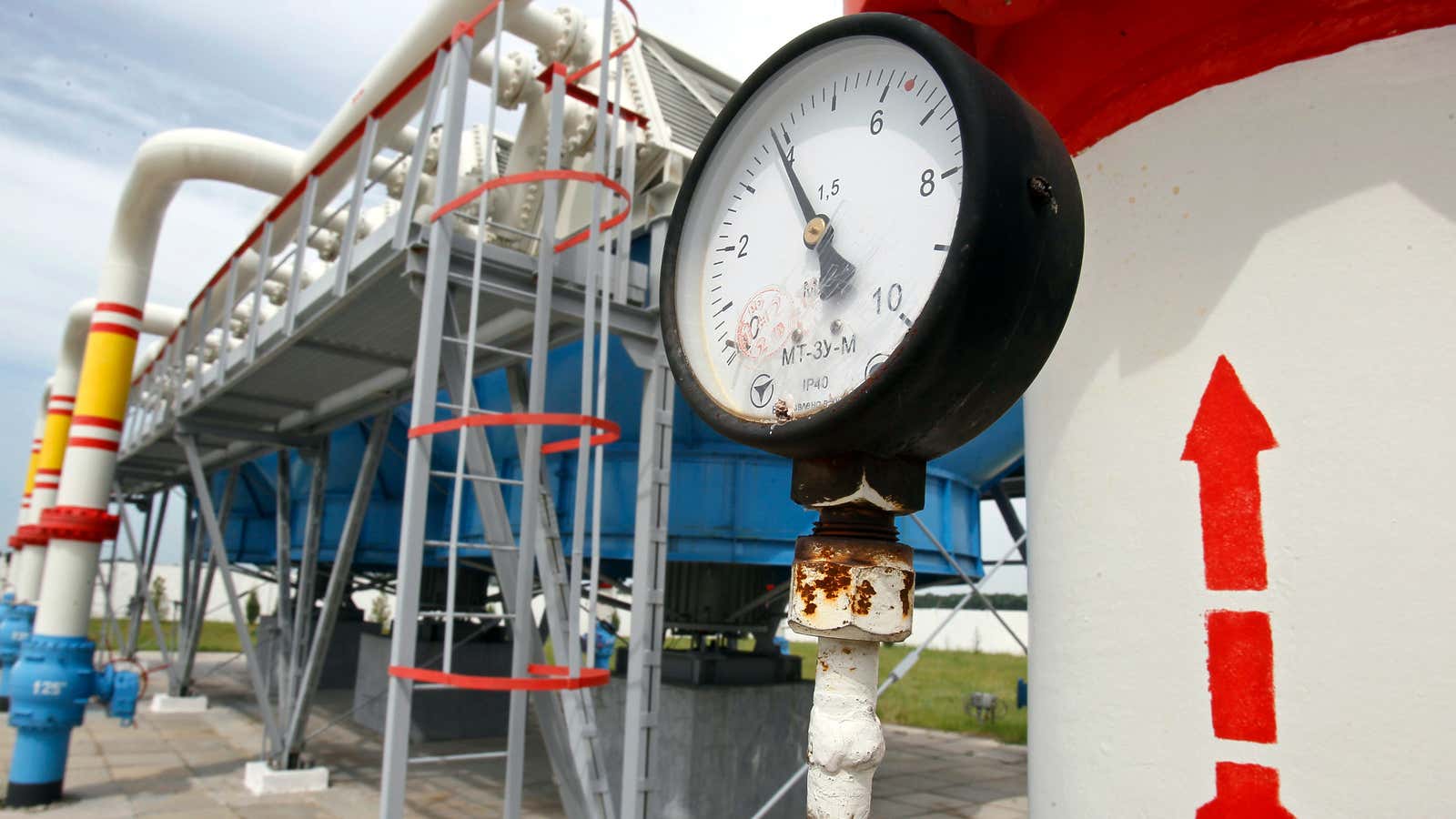Russia’s government is urging state-owned oil firm Gazprom to collect an over-due $882 million bill from Ukraine’s state-owned oil firm Naftogaz, even as the former Soviet state moves to strengthen its ties to Europe next month.
The belligerent tone and the timing has some observers nervous that Europe might see another winter like 2009, when Russia turned off the spigot bringing gas to Ukraine and, from there, to Europe. This left energy markets scrambling for new sources of winter energy, and millions of chilled consumers paying more for their heat.
But 2013 is not 2009, and there’s a low probability of another crisis as a result of the fallout from the last one. Thanks to the cheaper natural gas that has been unlocked with the application of hydraulic fracturing techniques, Europe has been able to diversify its energy sources, and Gazprom has been losing market share there. A new crisis would hurt both Gazprom’s earnings and Ukraine’s reputation as a transit hub, an outcome neither party to the conflict is interested in, according to Eurasia Group senior analyst Alex Brideau.
“It is a difficult situation for both sides, but I think there is an incentive for them to be careful about allowing something like this to turn into a crisis that can actually disrupt supplies to Europe,” he says.
The European Union has been feeling bold enough to challenge Gazprom with violating anti-trust practices.
Ukraine, however, has plenty to be concerned about. It’s caught in a bit of a trade war with Russia, which has called its plan to enter a free-trade agreement with Europe next month “treachery” and “suicidal.” Russia would prefer Ukraine join its own trade union, and the demand for it to pay its gas bill—and the threat that it will require advanced payments for future gas deliveries—hits the country at its weakest point: Dwindling reserves of hard currency mean that the country is having trouble paying anyone.
It isn’t without options: The association agreement with Europe, along with a free-floating currency and budget reforms, is likely to unlock a loan from the International Monetary Fund. Such a deal is expected to hinge on whether the government of president Victor Yanukovych will release his jailed rival, former prime minister Yulia Tymoschenko. She was convicted for abusing her power, on charges which the US and EU say were purely politically motivated, in connection with a 2009 oil deal she signed with Russia—the same one it is trying to collect on now.
